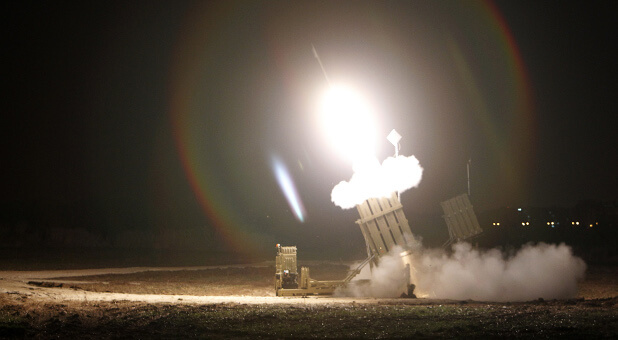The precedent in Eilat on Tuesday—the first Iron Dome interception of a rocket fired at the city—retrained public focus, if only for a moment, on what the defense establishment has known for quite some time: Sinai-based terrorists have made it their mission to make the lives of Eilat’s residents miserable and drive tourists away.
The successful rocket interception allowed the city’s residents and their guests to quickly put the incident behind them and resume their summer routine, leaving room for optimism: The Israeli public is no longer spooked easily. The fact that we did not see tourists fleeing the city will undoubtedly reinforce the sense of civilian resilience, spelling a victory over terror, which seeks nothing more than to disrupt our daily lives.
This won’t be the case should Eilat find itself under a prolonged attack—like the one endured by Sderot over the past decade or by the communities adjacent to the northern border in the 1980s and 1990s. Nor will it be the case should any attack result in casualties. That’s the power of the Iron Dome.
Israelis and foreigners alike prefer to spend their vacations in peace, and they will not travel south if danger is truly lurking there. The fact that Turkey and Bulgaria are equally, if not more, dangerous will do little to reassure people if rocket attacks become the order of the day.
This is what Israel must prevent. The defensive premise is tried and true—an Iron Dome battery has been deployed to protect Eilat, and it is not going anywhere for the foreseeable future. It is the offensive premise that poses a problem. Given the peace treaty with Egypt, Israel has very little leeway in Sinai, so it can do little to counter the growing threat.
Cairo may have been willing to tolerate the airstrike in Sinai over the weekend, which was attributed to Israel, but it is hard to believe that Egypt—even in the post-Mohammed Morsi era—would be sympathetic to regular Israeli military operations on its soil.
The solution lies with credible intelligence and quiet collaboration between Israel and Egypt. The Egyptians seem to be making an honest effort to fight the terrorists based in Sinai, but they have limited resources, intelligence and influence on the ground. This gap allows terror groups like Ansar Bayt al-Maqdis—the jihadi group that claimed responsibility for the rocket fire—leeway to plan and execute terror attacks that may result in a dangerous security escalation.
The chaos in the peninsula and the subsequent flocking of radical terror groups there, the amounts of weapons they have, and the lack of any real Egyptian authority on the ground make it hard to be optimistic about the future. The defense establishment also believes attacks on Eilat will continue in different forms and that some of them are bound to succeed. After we lost the paradise that once was Sinai, we have to focus our efforts on keeping the paradise that is Eilat safe.
For the original article, visit israelhayom.com.
















































